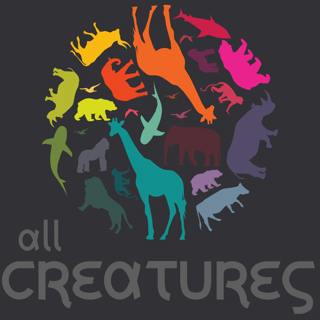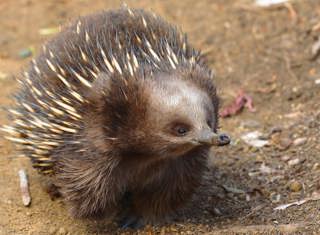
Episode 78: How Romeo Found His Juliet with Dr. Robin Moore from Global Wildlife Conservation
Romeo, the Sehuencas water frog , was though to be the last of his species. Yet, scientists like Dr. Robin Moore teamed up to give this species hope. Global Wildlife Conservation led an effort to travel to the cloud forests of Bolivia to find other Sehuencas water frogs and lo and behold, they found Romeo his Juliet. Shoe notes are HERE Learn more about your ad choices. Visit megaphone.fm/adchoices
14 Maalis 20191h

Episode 77: A Giant that's an Anteater
A species many forget, the Giant Anteater when seen captures many hearts. Sadly, the Giant Anteater population is in serious decline and may be heading towards extinction. Their story highlights the plight of many animals in South America. Show notes HERE Learn more about your ad choices. Visit megaphone.fm/adchoices
5 Maalis 20191h 8min

Episode 76: It Regenerates, It's the Axolotl
One of nature’s most amazing creatures, the Axolotl, has the ability to regenerate lost limbs and other body tissues. Sadly, these amphibians are almost extinct in the wild, and scientists are racing to discover its secrets, secrets that could benefit humans and other species. Show notes HERE Learn more about your ad choices. Visit megaphone.fm/adchoices
26 Helmi 20191h

Episode 75: The Magnificent Mountain Gorilla Part II
We return with more on Gorillas and their conservation. You can read more HERE from our first episode. Show notes HERE Learn more about your ad choices. Visit megaphone.fm/adchoices
19 Helmi 20191h 13min

Episode 74: Gorilla Conservation with Ron Evans Cincinnati Zoo
Ron Evans has worked at the Cincinnati Zoo and Botanical Garden since 1984 as a keeper, supervisor and is currently the Curator of Primates. We spend a captivating hour learning about his work here in the United States and in the wilds of Africa, fighting to preserve these great apes. Show notes HERE Learn more about your ad choices. Visit megaphone.fm/adchoices
14 Helmi 20191h 1min

Episode 73: The Magnificent Mountain Gorilla, Part I
When you look at the face of a Mountain Gorilla, you are looking back at our own reflection. Gorilla DNA matches 98.4% of humans, and only the Chimpanzee is a tad closer (we share 98.8% DNA). One of our closest relatives, Mountain Gorillas were almost on the brink of extinction, but are now slowly recovering with a focused conservation plan and with the help of ecotourism. We are dividing this episode into two parts so we can dive deeper into the data of the Mountain Gorilla. Learn more about your ad choices. Visit megaphone.fm/adchoices
12 Helmi 201951min

Episode 72: Pika Who? Ili Pika, that's Who!
Without doubt, the Pika (pie – ka) is one of the most charismatic mammals on Earth. The Ile (ee-lee) Pika from China is endangered and has just been recently been spotted after an absence of nearly 20 years. Listen to learn more about why this species is so special and also critical to science. Show notes HERE Learn more about your ad choices. Visit megaphone.fm/adchoices
5 Helmi 20191h 7min

Episode 71: World Wildlife Fund Elephant Specialist Nilanga Jayasinghe
Nilanga Jayasinghe is a senior program officer for Wildlife Conservation at WWF and focuses on Asian species, particularly elephants, rhinos, tigers and snow leopards. She has more than 15 years of extensive experience in international species conservation and has worked on conservation issues across the board in Asia, Africa and North America. We are extremely fortunate to spend an hour with her talking about her work in conservation. Show notes HERE Learn more about your ad choices. Visit megaphone.fm/adchoices
29 Tammi 201947min


















